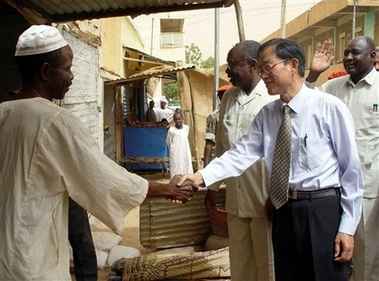
Practical information
To discuss China's role in Africa, Ifri is pleased to welcome:
Chris Alden (London School of Economics) to provide a general overview of evolving China-Africa relations;
Daniel Large (School of Oriental and African Studies, University of London) to discuss China's presence in Sudan; and
Zhu Ming (Shanghai Institutes for International Studies) to speak on Sino-African ties and south-south cooperation in redesigning international institutions
Since the end of the 1990's, China's growing economic and diplomatic presence in Africa has attracted attention, as well as concern. In the West, many analysts and diplomats are critical of a Chinese "grand plan" whose effects would be to loot African natural resources and undermine efforts to promote democracy and good governance (as well as move western companies out of African markets, in sectors such as construction). This view is partly based on misperceptions, especially about the Chinese government's capacity (and willingness) to give directions to the multitude of Chinese organizations and individuals setting a foot in Africa.
And yet, Chinese policies in Africa have evolved. Now being an established power in Africa, China has gone through a learning process about the specificities of African contexts. This conference will discuss what this "normalization" of Chinese policies in Africa means.
Chaired by Vincent Darracq, Visiting Fellow, Ifri Africa Programme
Other events

From Ambition to Action: Exploring Technological Partnerships with India
The 16th EU-India Summit, held on January 27th in New Delhi with European leaders António Costa, Ursula von der Leyen, and Prime Minister Narendra Modi, marks a significant milestone in deepening EU-India relations. At the same time, official bilateral visits from EU member states are on the rise, including that of the French President, who visited India in February to participate in the Artificial Intelligence Summit. As India asserts its technological ambitions and seeks to reduce its dependence on China, Europe is stepping up its efforts to diversify its strategic partnerships.

The Enlargement of the European Union: A Strategic Choice? France, the Western Balkans and the EU in an Uncertain Geopolitical Context
Russia’s war against Ukraine has brought the enlargement of the European Union back to the centre of European strategic debates. In this context, the Western Balkans have regained heightened visibility in discussions on the continent’s security, at a time when the international environment is marked by a growing number of destabilising factors.






